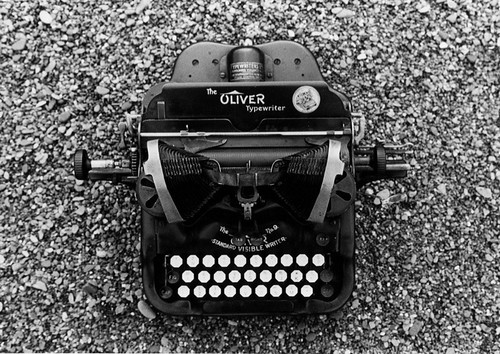It seems that Spring is the time the of year for technological mayhem to come down on me. Always. I don't know if it is the tricksy hand of Fate or something less cosmic. The laptop being the sole canvass on which I write my novels, this is always a big deal.
Thursday, May 30, 2013
My Kingdom for a Flash Drive!
It seems that Spring is the time the of year for technological mayhem to come down on me. Always. I don't know if it is the tricksy hand of Fate or something less cosmic. The laptop being the sole canvass on which I write my novels, this is always a big deal.
Saturday, September 29, 2012
Adventures in Logophilia Day 17: Amanuensis
An amanuensis (noun) is a person employed to write from dictation or to copy manuscript - from the 17th century, referring to a scrivener, scribe or secretary. Pronounced: "ah-man-yuh-WEN-sis."
This sounds like a very important job title. Imagine if we secretaries and copyists went by such a title these days? I love the way it looks. Copy-work isn't exciting. If you've ever read Melville's "Bartleby the Scrivener", you know what I mean: three men were employed in the narrator's office to keep track of documents and duplicate them. Margaret Lea, the narrator in The Thirteenth Tale, describes herself as an amanuensis to a famous writer telling her last scintillating tale. Amanuensises (is that right?) are the first listeners of a story, becoming the silent narrators upon its retelling. It is a role we inhabit when we're constructing our stories: the story/novel comes out of us, it is our job to obey and see where it wants us to go instead of the other way around. The story dictates. We do our best to copy. Writing is humble, but it can indeed be glorious work.
You may have noticed I located a manual typewriter. All I had to do was inquire of my roommate. As this was her grandparents' house, I am surrounded by hidden treasures waiting to be used.
Friday, February 18, 2011
Computer Diaspora (Jillian)
Forgive the moaning in the above paragraph, but I am sure you can relate. When a writer’s preferred tool of crafting and performing her art is mercilessly taken away, a feeling of hopelessness settles in. Last year, I had the misfortune of falling down marble stairs at work with the same computer. Result? Cracked screen, just like a car windshield, but in retrospect, it could have easily been my skull. It was taken a repair shop where it languished idle for about two and a half weeks. Never mind how expensive that venture was, it was next to impossible to overcome the feeling that my hands had suddenly been cut off, and I could not write. Period. I dread returning to that state of writing paralysis again.
As I consider sending my dear friend away for another necessary respite, I cannot help but think how ludicrous the “writing paralysis” is. Yes, it is almost excruciating to be separated from the thing that has been such a vital instrument in my writing, but… I can write… because essentially writing is not about the computer. My brain works the same. My hands still work. The story is in my head, and not necessarily in its most consummate form on the hard drive, anyway. And, I must remind myself, writing via word processing machine is only a recent trend. After all the likes of the magnificent Mr. Chaucer and Mr. Shakespeare, many before and many, many after, produced manuscripts without use of a laptop, spell-check, online references and dozens of fancy fonts. Quills, hand-made ink, grossly expensive parchment and/or vellum, blotting paper, and candlelight… those were the tools. And what wonderful tools they are!
In fact, only last year (if you recall), Agatha Christie’s writing desk went on sale, no doubt for a pretty sum. I read Lucy Davies’ blog on the Telegraph website, and was intrigued some time ago by an entry devoted to those who collect the palettes of van Gogh, Monet, Manet, Mattise, etc. Anne Frank’s diary is preserved under glass. So is the Magna Carta in its various surviving versions. I wonder sometimes if I ever become noteworthy (ha! If at all, long after my demise!) would they preserve my laptop behind glass? Would it convey the same meaning as Jane Austen’s simple writing table, or would it be just another old computer with a black, dead screen? Hm…
I must remind myself that I do have these simple tools, too. Wouldn’t it be such a challenge, such an adventure to continue work on my novel as if nothing ever happened… except the change in medium? If all those others can make use of simple paper and pen, why can’t I? I already do.
So, I am beginning to toy with the idea of writing actual chapters via legal pad. While I have not yet lost the ability to write with a pen and paper, I don’t know if I’d have the patience for it. Another idea… old typewriter? That would definitely be an easier transition. But where might I find one that is both functional and semi-affordable?
A lot of things to think about. My only hope is that any crazy experiment can cause me to grow into a more versatile writer… the kind of person who can write a novel on a train or in a coffee shop, even if all I have is a napkin. After all, that’s what J.K. Rowling did – legal pads, coffee and a café after hours.
By Jove! It’s so simple, it just might work!
Thursday, January 15, 2009
Words Creating Pictures (Jillian)
Today's subject of intrigue: typewriter art by Keira Rathbone! Literally pictures, portraits and landscapes brilliantly rendered from ink strokes and letters on a typewriter! It creates this brilliant metaphor in my head - of words threading themselves together into a tapestry to create an striking picture, creating layers, hidden messages... ah! Not to mention, I wish I had an old typewriter... not necessarily to create pictures (I'll leave that to Keira's amazing talent), but to connect with words in that special way. Perhaps the next time I venture to a garage sale or an antique shop! Wonderful, wonderful whimsy!
Thank you Daily Telegraph! You are my inspiration!
Welcome
To read more about why Daedalus Notes exists, click here.



